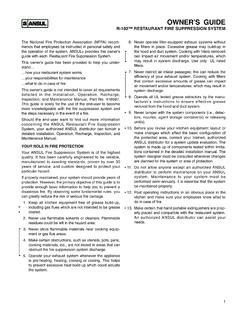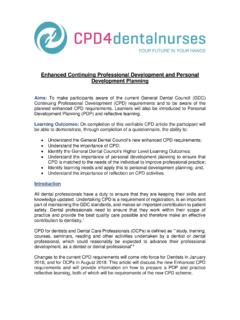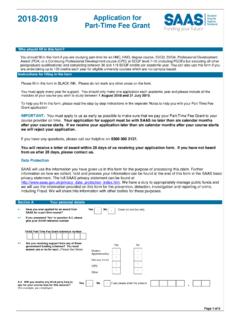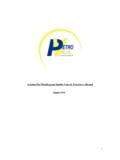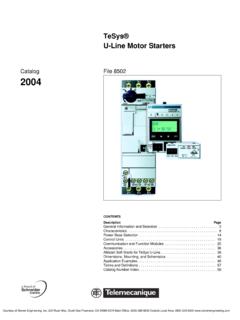Transcription of A study to investigate the reasons for bank frauds …
1 Int. Journal of Business Science and Applied Management, Volume 4, Issue 3, 2009 A study to investigate the reasons for bank frauds and the implementation of preventive security controls in Indian banking industry Ashu Khanna Department of Management Studies, Graphic Era University, 566/6, Bell Road, Clemet Town, Dehradun, India Tel: 00919756972391 Email: Bindu Arora Department of Management studies, Kanya Gurukul Mahavidyalaya 2nd Campus, Gurukul Kangri University, 47, Sewak Ashram Road, Dehradun, India Tel: 00919412173247 Email: Abstract This paper examines the issue of frauds from the perspective of banking industry. The study seeks to evaluate the various causes that are responsible for banks frauds . It aims to examine the extent to which bank employees follow the various fraud prevention measures including the ones prescribed by Reserve Bank of India.
2 It aims to give an insight on the perception of bank employees towards preventive mechanism and their awareness towards various frauds . The study signifies the importance of training in prevention of bank frauds . A strong system of internal control and good employment practices prevent frauds and mitigate losses. The research reveals that implementation of various internal control mechanisms are not up to the mark. The results indicate that lack of training, overburdened staff, competition, low compliance level (the degree to which procedures and prudential practices framed by Reserve bank of India to prevent frauds are followed) are the main reasons for bank frauds . The banks should take the rising graph of bank frauds seriously and need to ensure that there is no laxity in internal control mechanism.
3 Keywords: bank frauds , preventive measures, internal control, compliance, and security controls Int. Journal of Business Science and Applied Management / 2 1 INTRODUCTION Banks these days are being duped of crores of Rupees, thus destabilizing investor s confidence. The year 2005 witnessed the wiping of Rs. crores from the banking industry in India due to bank frauds , which was about times the amount lost in the previous year. Banks are dealing with public s money and hence it is imperative that employees should exercise due care and diligence in handling the transactions in banks. Recent rise in bank frauds calls for tightening of security mechanism. A strong system of internal control is the most effective way of fraud prevention. The banks should increase their efforts to raise the level of security awareness in their organizations to combat frauds .
4 2 RESEARCH OBJECTIVES The study seeks to evaluate the extent of implementation of internal control mechanism. It aims to identify the procedural lapses and various other causes responsible for bank frauds . The study seeks to know the perception of bank employees towards bank frauds and their compliance towards implementation of preventive mechanism. It also evaluates the factors that influence the degree of compliance. 3 SURVEY OF LITERATURE According to Albrecht (1996), the symptoms of poor internal controls increase the likelihood of frauds . Internal control symptoms include a poor control environment, lack of segregation of duties, lack of physical safeguards, lack of independent checks, lack of proper authorizations, lack of proper documents and records, the overriding of existing controls, and an inadequate accounting system.
5 Bologna (1994) cites the environmental factors that enhance the probability of embezzlement, they are: inadequate rewards; inadequate internal controls; no separation of duties or audit trails; ambiguity in job roles, duties, responsibilities, and areas of accountability; failure to counsel and take administrative action when performance levels or personal behaviour fall below acceptable levels; inadequate operational review; lack of timely or periodic review, inspections, and follow-up to assure compliance with company goals, priorities, policies, procedures, and governmental regulations and failure to monitor and enforce policies on honesty and loyalty. Beirstaker, Brody, Pacini (2005) proposed numerous fraud protection and detection techniques. These various techniques include fraud policies, telephone hotlines, employee reference checks, fraud vulnerability reviews, vendor contract reviews and sanctions, analytical reviews (financial ratio analysis), password protection, firewalls, digital analysis and other forms of software technology, and discovery sampling.
6 Calderon and Green (1994) made an analysis of 114 actual cases of corporate fraud published in the Internal Auditor between 1986 and November 1990. They found that limited separation of duties, false documentation, and inadequate or nonexistent control account for 60 percent of the fraud cases. Moreover, the study found that professional and managerial employees were involved in 45 percent of the cases. Based on the findings, they recommended the following: To deter fraud, internal auditors should ensure that strong prevention systems based on the fundamental principles of good internal control be established and used. To detect and investigate fraud, organizations must ensure the existence of strong internal audit departments with sufficient resources to pursue the increased responsibilities faced by internal auditors.
7 Barnes (1995) has pointed out that the quality training to bankers helps not only in developing job related skill but also maximizes the performance potential of bankers and provides them the sound knowledge and understanding of banking practices and principles. Imparting training is of paramount importance in this regard. To Commercial Angels Newsletter (2001), the best way of preventing fraud was to understand why it happened. Fraudster generally identifies loopholes in control procedures and then assess whether their potential rewards will outweigh the penalties should they be caught. A regular control is most effective for prevention of frauds and normally requires little management time or effort. Prevention of frauds starts with identification of weakness in current systems of the organization. Next the organization must improve those systems with new or better controls.
8 The introduction and enforcement of controls will reduce the opportunities for frauds . The control warns potential fraudster that the management is actively monitoring the business and in turns deters frauds . Education, training and awareness programmes are informal intervention measures that should be implemented to prevent frauds . Ashu Khanna and Bindu Arora 3 Ganesh and Raghurama (2008), believe that training improves the capabilities of employees by enhancing their skills, knowledge and commitment towards their work In the survey conducted by them, about 80 executive from Corporation Bank and Karnataka Bank Ltd of India, were requested to rate their subordinates in terms of development of their skills before and after they underwent certain commonly delivered training programs. Responses revealed that for the seventeen skills identified there was improvement in the skills statistically.
9 The paired t-test was applied individually for the seventeen skills, and all these skills have shown statistical significance. The seventeen skills include analytical skill, human resource skill, marketing skill, communication skill, accounting skill, credit appraisal skill, cash management skill, time management skill, inter-branch reconciliation skill, conceptual skill, information technology related skill, technical skill, role identification skill, problem solving skill, behavioural skill, risk management skill and customer service skill. Haugen and Selin (1999) discussed the value of internal controls. Internal control system has four broad objectives: to safeguard assets of the firm, to ensure the accuracy and reliability of accounting records and information, to promote efficiency in firm s operations and to measure compliance with management prescribed policies and procedures.
10 The effectiveness of internal controls depends largely on management s integrity. There are many other reasons for employee fraud, the more common being revenge, overwhelming personal debt, and substance abuse. Business today is very competitive, and employees often stressed. As a result, they have a feeling of being overworked, underpaid, and unappreciated. If employees are also struggling with serious personal problems, their motivation to commit fraud is very high. Adding to the situation of poor internal controls, the readily available computer technology also assists in the crime, and the opportunity to commit fraud becomes a reality. Harris and William (2004) examined the reasons for loan frauds in banks and emphasised on due diligence program. This is a proactive approach, with each business line within the institution establishing policies and procedures for conducting due diligence investigations for both new and existing customers.

